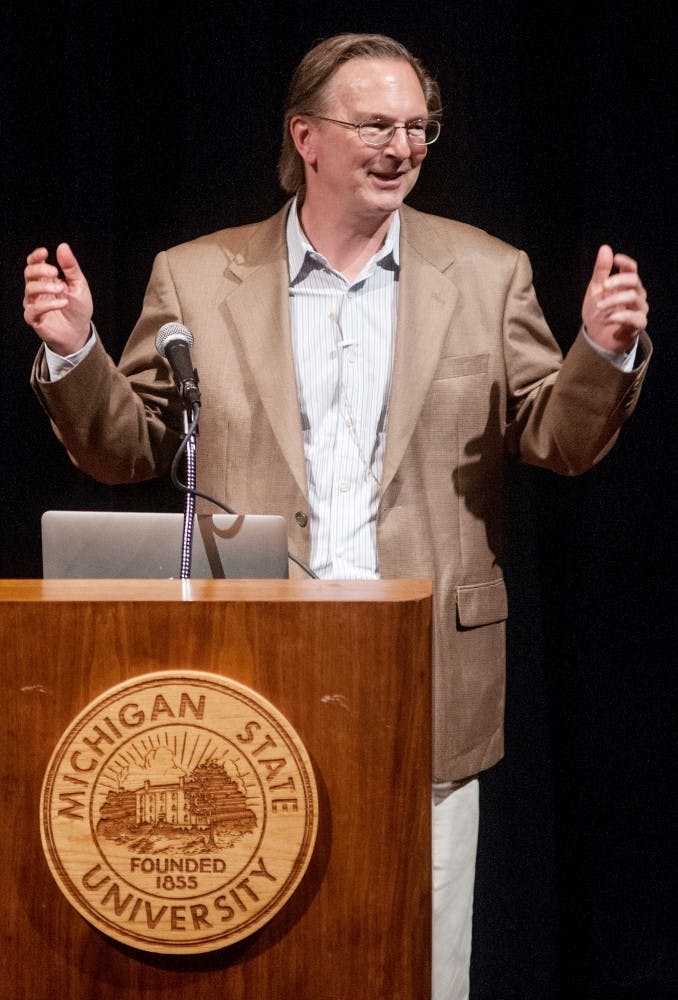Following a 24-hour flight from Japan, So Tsuda finally was able to relax in East Lansing and focus his love for science, with none other than a Nobel Prize winner.
Tsuda was one of about 500 people in attendance for Nobel Prize winner Jack Szostak’s opening keynote speech for Artificial Life 13, the thirteenth international conference on the simulation and synthesis of living systems.
“I find it really inspiring,” Tsuda, of Osaka University in Japan, said of Szostak’s presentation. “His research is quite fascinating because he finds the solution (to what) everyone wants to know, in a pretty smart way.”
Szostak, a Harvard genetics professor who won the 2009 Nobel Prize in physiology or medicine “for the discovery of how chromosomes are protected by telomeres and the enzyme telomerase,” gave the keynote presentation entitled “The Origin of Life and the Emergence of Darwinian Evolution,” on Thursday at the Wharton Center.
During the presentation Szostak discussed his research as well as a step-by-step look at how life might have begun at the molecular level. Afterward audience members were able to ask Szostak questions, which MSU alumnus and employee Chip Falkiewicz said was his favorite part.
“It was very interesting to see peoples’ creativity and response to this talk … and just witnessing what other people had to offer,” Falkiewicz said. Falkiewicz did not attend the conference but attended the free presentation.
He said the presentation would have been interesting no matter who gave it, but he was thankful it was a Nobel Prize winner, as he might not have heard about it otherwise.
“We are delighted to host a Nobel Prize winner, especially one who has contributed so much to this particular field.” Danielle Whittaker, BEACON Center for the Study of Evolution in Action managing director, said in an email.
This is the first time the conference has been held at MSU or in Michigan, Whittaker said. She said it’s MSU researcher’s work in Artificial Life that led to the decision to host the conference on campus.
She said the conference brings together interdisciplinary scientists every other year and focuses on the synthesis and simulation of living systems, including those that occur in nature, the possibility alternative life forms and concepts that may not have occurred in natural evolution.
The conference ran from July 19-22 and was attended by 300 people from all over the world, including graduate students, post-doctoral students, faculty members, and those interested in biology, computer science, engineering and art, Whittaker said.
The mixture of individuals present was especially enticing for Tsuda, who said although a presentation from a Nobel Prize winner is exciting, it’s not what makes him travel such a far distance for the third time.
“Mixing a lot of people in different contexts … we can have different discussions and bring it back to (topics) we love,” Tsuda said.
“It’s just exciting to be here.”
Support student media!
Please consider donating to The State News and help fund the future of journalism.
Discussion
Share and discuss “Nobel winner speaks at Wharton” on social media.







